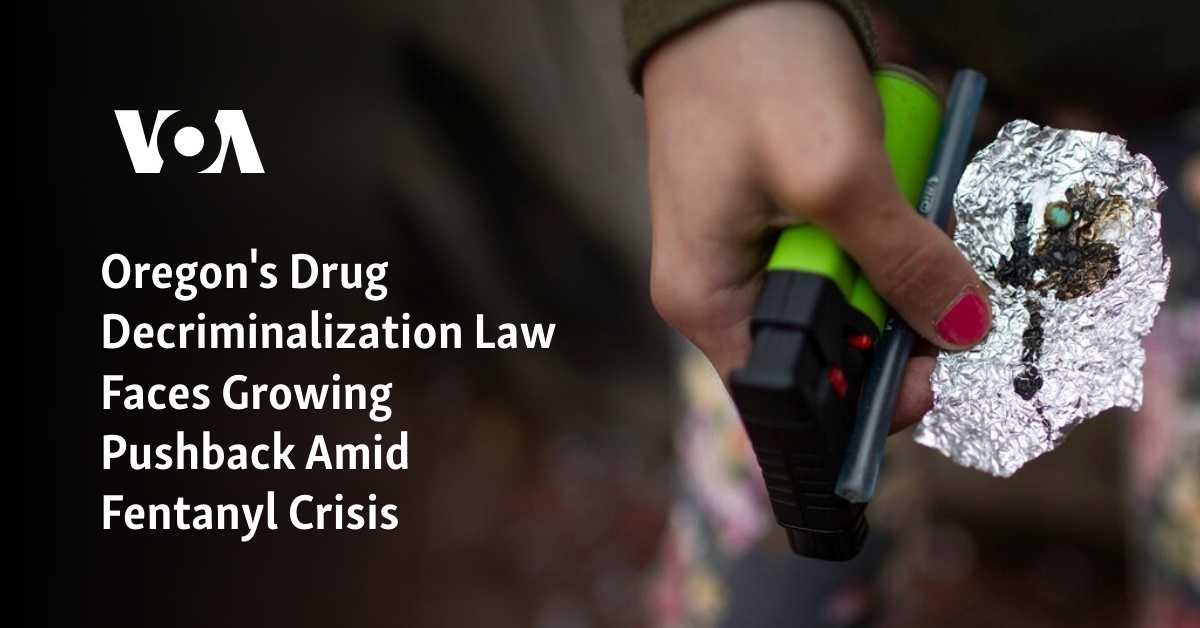This is interesting.
Firstly, I love that states inherently have the power to set their own laws. This allowed Oregon to be a great large scale experiment for drug policy.
I saw some interesting quotes:
But estimates from the U.S. Centers for Disease Control and Prevention show, among the states reporting data, Oregon had the highest increase in synthetic opioid overdose fatalities when comparing 2019 and the 12-month period ending June 30, a 13-fold surge from 84 deaths to more than 1,100.
Despite public perception, the law has made some progress by directing $265 million dollars of cannabis tax revenue toward standing up the state’s new addiction treatment infrastructure.
I guess since only cannabis is sold, it’s the only taxable substance in the mix.
Some lawmakers have suggested focusing on criminalizing public drug use rather than possession. Alex Kreit, assistant professor of law at Northern Kentucky University and director of its Center on Addiction Law and Policy, said such an approach could help curb visible drug use on city streets but wouldn’t address what’s largely seen as the root cause: homelessness.
Homelessness leads to drug use? Or drug use leads to homelessness? Couldn’t it be either?
In the first year after the law took effect in February 2021, only 1% of people who received citations for possession sought help via the hotline, state auditors found.
Critics of the law say this doesn’t create an incentive to seek treatment.
Thoughts:
-
Maybe just start with cannabis and see how that goes? Or do we really need to progress collectively to heroine, meth, cocaine, MDMA?
-
Is the major public health crisis the use of more illicit drugs, or overdoses? Is possible that recreational use of cocaine/MDMA/others wouldn’t be as big of a crisis as meth and fentanyl?
-
Should heroine be legal for use?
-
Should MDMA be legal for use?
-
Should cocaine be legal for use?
( I am not advocating for or against use of these substances with this post. Posted for discussion/interest. Questions are posed for discussion. )



It is very difficult to get people to quit opioids long term when they’re in real physical pain and are stuck with a for-profit medical system that they can’t afford. Getting them addiction treatment will not get rid of the pain. Eventually, they’ll go back to using. What choice do they have?
I am a chronic pain sufferer whose nerve disorder is mostly controlled through medication so I absolutely understand how horrible it is to feel pain every day and I know what it feels like to have something that makes it all go away. In my case, I’m taking neurological drugs, not opioids, but if opioids had worked (and I did try them) and I was in financial dire straits, I might be in the same place as they are.
deleted by creator
Unless by ‘social conditions,’ you mean universal healthcare, I think you’re missing my point.
Hopefully Indiana will allows cannabis cultivation sometime soon. They and KY could just switch from tobacco and make a killing with hemp/ marijuana.
I sure hope so. I’m just glad I’m on the Illinois state line. Wish I was closer to Michigan.
deleted by creator
Fair enough.
deleted by creator
Haha, thank you. I have like Lemmy face blindness so I rarely know who anyone is, but I’m sure you are also worthy of love.
The nice thing about (most) people on Lemmy is that we can disagree- or even just think we disagree when we don’t- and still get along afterward.
deleted by creator
Vaguely? I’m really sorry. To be fair, I am dealing with a lot of shit right now, but I’ll try to keep an eye out for your username in future. :)
That’s a real concern for sure.
I’ve got c5/6 stuff, already doing cortisone, worried about the future and pain management.
Loads of people trying to balance PM without becoming addicts. Now that we’ve finally seen the systemic pharmaceutical industry issues.